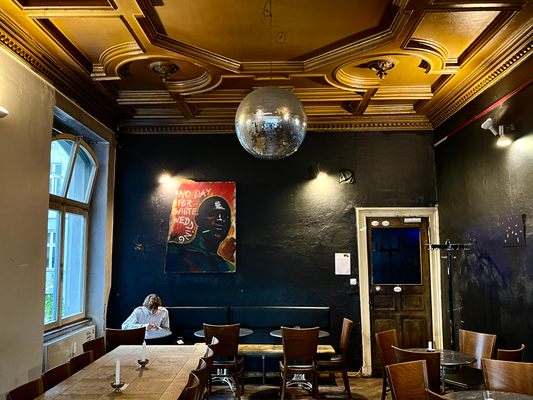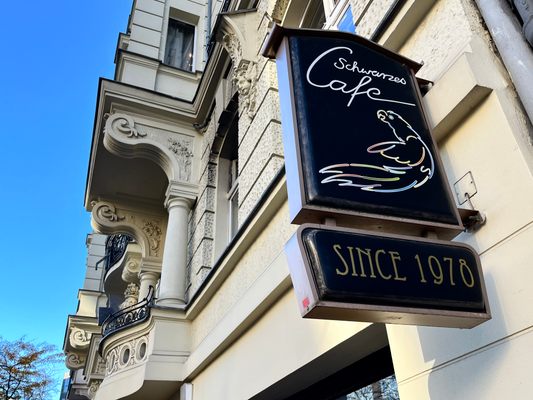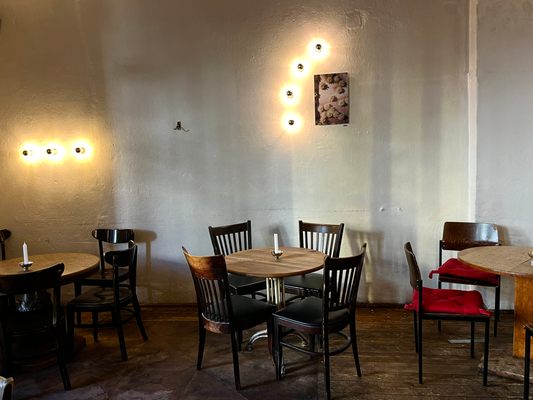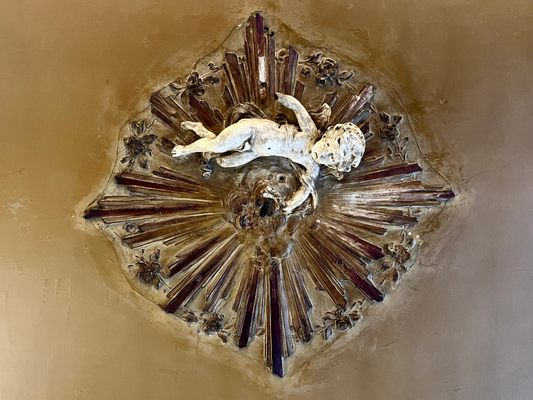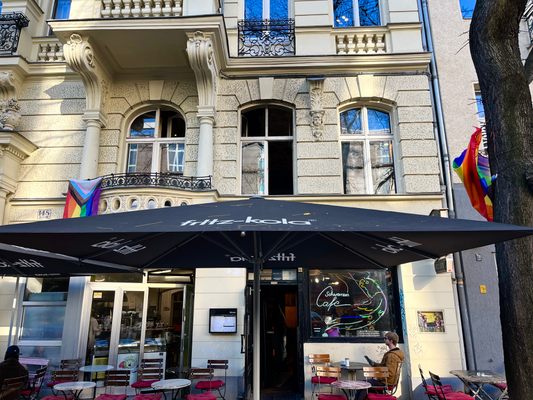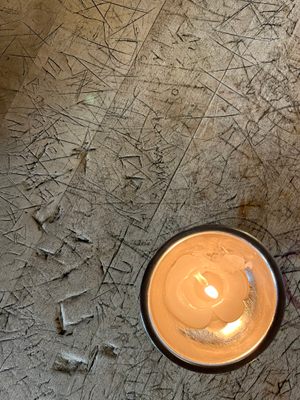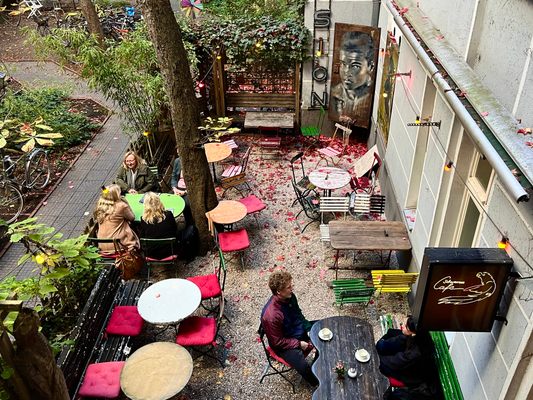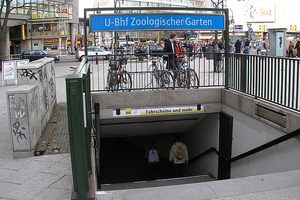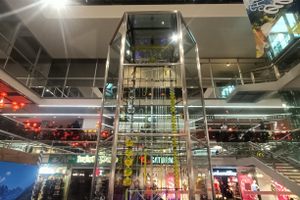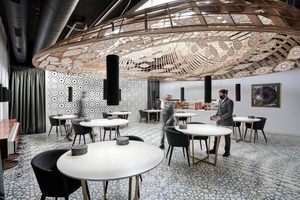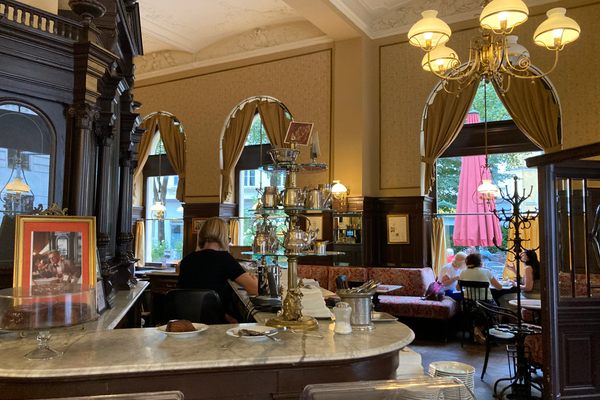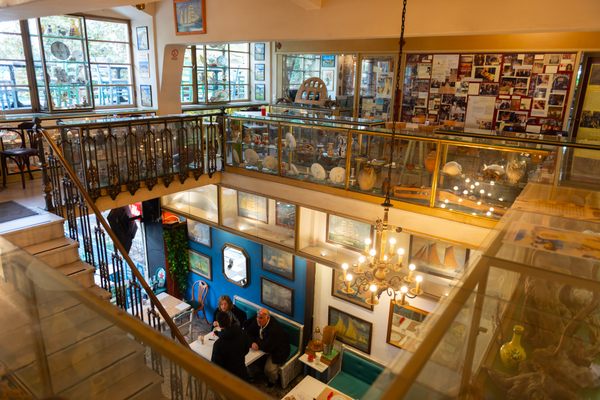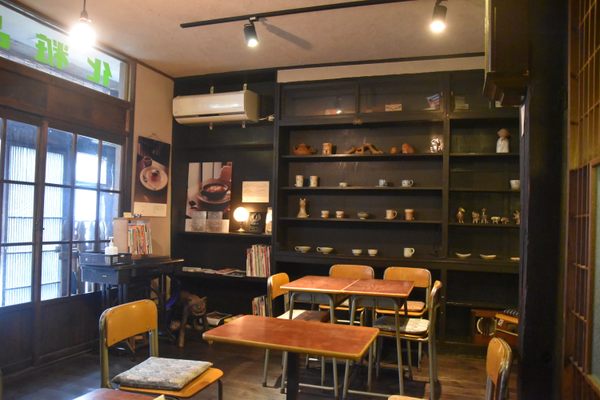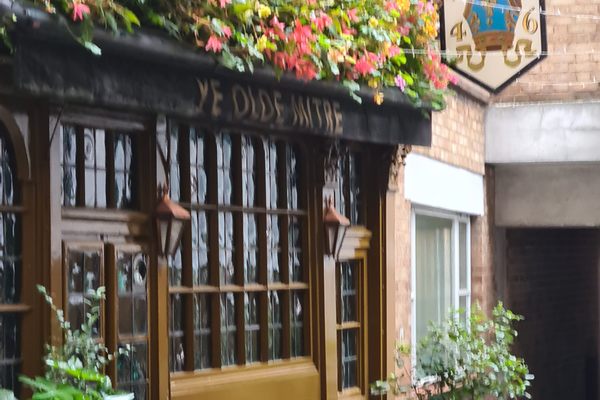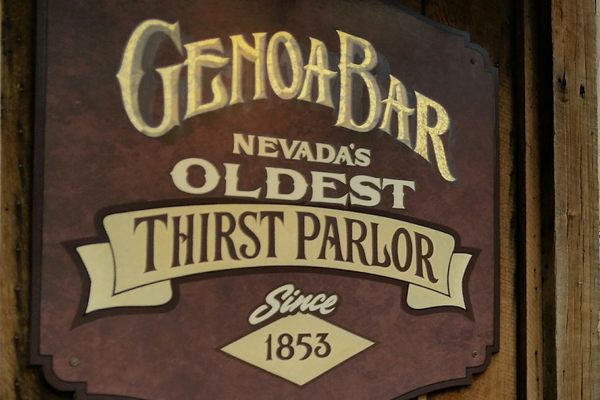About
When David Bowie left Los Angeles for a small flat in West Berlin in the late 1970s, he quickly became something of a fixture in the city’s nightlife scene. “For many years Berlin had appealed to me as a sort of sanctuary-like situation,” he would later say. “It was one of the few cities where I could move around in virtual anonymity.” According to locals, the musician could often be spotted at Chez Romy Haag, the eponymous cabernet that belonged to a legendary trans performer and nightlife impresario, or grabbing a steak with Iggy Pop below the neon sign of Paris Cafe.
Schwarzes Café opened its doors in 1978, toward the tail-end of the Thin White Duke’s Berlin years. It quickly became one of his regular haunts. The restaurant was the work of a radical socialist collective, which opened it in the wake of the Tunix Congress, a left-wing gathering at the Technische Universität (TU). It quickly became an after-hours hub, thanks to one particular feature: with the exception of a brief window in the wee hours of Tuesday mornings for cleaning, it never closed.
Decades later, Schwarzes Café still feels almost defiantly incongruous with its surroundings on bourgeois Kantstrasse. A rainbow-hued parrot sign glows in the window of the building’s mustard-hued, baroque facade. Regulars inevitably can be seen smoking from the balcony and spilling out from the umbrella-covered tables on the street.
The interior, decked out in peeling plaster molding with an enormous disco ball, has the magnificently dilapidated air of an artist’s squat. In the wake of the COVID-19 pandemic, Schwarzes Café reduced its hours somewhat, making this no longer a true 24/7 hangout. Nevertheless, the owners pour whiskey sours long after the other bars in the neighborhood have fallen silent, followed by coffee and eggs a few hours later when the sun comes up.
Related Tags
Know Before You Go
These days, Schwarzes Café closes at 2 a.m. each morning.
Community Contributors
Added By
Published
February 23, 2023
